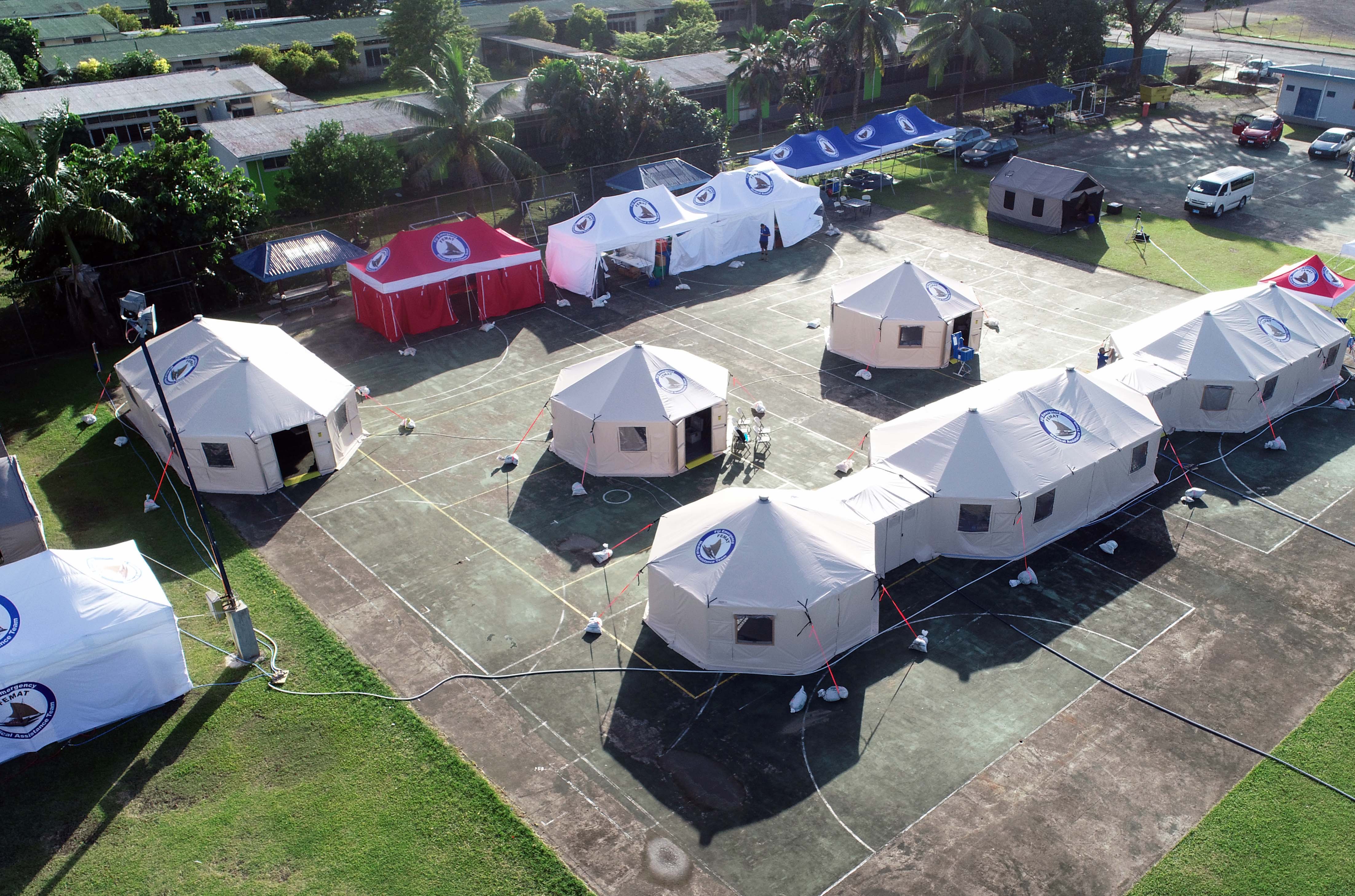The World Health Organization (WHO) says Fiji’s Emergency Medical Assistance Team (FEMAT) is ready for international deployment, becoming the first team in the Pacific islands with this unique capability.
Verified as a Type 1 Fixed Emergency Medical Team (EMT), FEMAT is now able to respond domestically and across the Pacific, providing a broad range of medical and emergency services for up to 100 patients per day.
Having passed a comprehensive assessment by WHO in Suva over May 10-11, 2019 with observers from Australia, New Zealand, the Philippines taking part, FEMAT can provide initial emergency care for injuries and other acute health needs.
This capability was tested on May 10, with WHO and observers reviewing a full deployment of FEMAT’s ‘field hospital’, as well as all clinical care services including triage, first aid, patient stabilization and referral of severe trauma and non-trauma emergencies.
Fiji’s Minister for Health and Medical Services, Dr Ifereimi Waqainabete, responsible for FEMAT as a Ministry resource, said the verification demonstrated Fiji’s continuing investment in disaster preparedness and response, especially its commitment to high-quality and rapid health emergency response in Fiji and beyond.
“The Pacific is a hotspot for disasters and emergencies, particularly in the face of a changing climate. FEMAT is a vital tool in ensuring Fijians and our friends across the Pacific are better protected and supported in times of crisis. We are thrilled our investments have been recognised by WHO.”
Dr Corinne Capuano, Director of Pacific Technical Support and WHO Representative to the South Pacific, noted the pressing needs FEMAT will address.
“With 11 disasters and 26 outbreaks during 2018 in the Pacific, Fiji’s achievement is timely. FEMAT is positioned among an elite network of international EMTs that can be rapidly deployed. Their efforts will save lives in Fiji and other Pacific island countries, and is a meaningful example of how a country has leveraged a WHO initiative to strengthen its capacity to respond to health emergencies in Fiji and across the Pacific.”
The verification involved in-depth reviews of FEMAT’s processes and policies, as well as assessments of the skills and equipment they need to deploy rapidly.
Verification was confirmed on recently by WHO, and awarded to the Hon. Prime Minister Josaia Bainimarama at a ceremony in Suva with the FEMAT team.
During the ceremony, Minister Waqainabete thanked international partners for their significant support, particularly the Australian Government, New Zealand’s Ministry of Foreign Affairs and Trade (MFAT) and WHO.
Australian High Commissioner to Fiji, John Feakes, said that now, more than ever, preparedness was important to lessen the impact of disaster on vulnerable populations.
“Australia is pleased to support the Fijian Ministry of Health and Medical Services to assemble and verify a Type 1 Fixed Emergency Medical Team, the first of its kind in the Pacific region. The Ministry’s capacity to deploy a fully-fledged field hospital and deliver a broad range of medical services when required, in Fiji or offshore, is an incredible achievement that further cements Fiji’s position as a pioneer within the Pacific. I commend the Ministry for its commitment to ensuring that peoples’ access to health services is not restricted after a disaster, and that the quality of those services is not compromised. On behalf of the Australian Government I extend warm congratulations to the Ministry of Health and Medical Services on this milestone achievement.”

